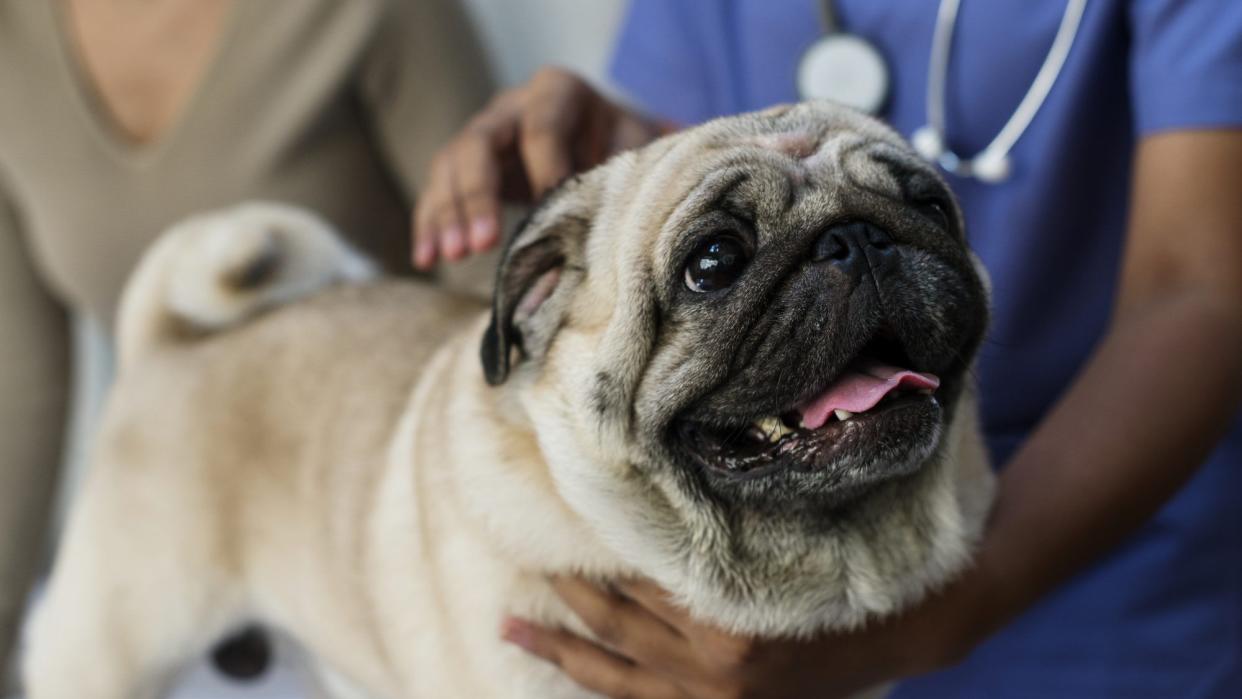Pet Dog Confirmed to Have Coronavirus Following Cats' Diagnosis

Rawpixel A pug at the vet.
After two pet cats were diagnosed with COVID-19 in New York, a dog in North Carolina followed suit testing positive for the virus.
The parents of the family of the pup, Winston, are both medical workers and had both contracted COVID-19 along with their son who were all participating in an epidemiology study.
"Pugs are a little unusual in that they cough and sneeze in a very strange way," the family's mother told North Carolina news outlet WRAL. "So it almost seems like he was gagging, and there was one day when he didn't want to eat his breakfast, and if you know pugs you know they love to eat, so that seemed very unusual," she said.
Their daughter and other pets tested negative. The family told WRAL that Winston, who is believed to be the first dog with coronavirus, is now recovering.
The news follows the U.S. Department of Agriculture's announcement last week that two pet cats in New York State were diagnosed with COVID-19.
One of the cats contracted COVID-19 from its owner but the other one was living in a house where no one was confirmed to have had the virus. It may have been transferred to the cat by an asymptomatic household member or through a person it had contacted outside the house.
Both cats had minor respiratory illness and are expected to make a full recovery.
At this time, there is still no evidence that pets or animals play a role in the spread of COVID-19. The animals that have been known to have contracted the disease had close contact with humans.
The USDA will continue to post more information online should other animals across the country be confirmed to have COVID-19.
The Centers for Disease Control (CDC) recommends not letting pets interact with other animals or humans when they are outside. If you're walking your dog, you should take care to maintain social distancing measures and stay at least six feet away from other people as well as their pets. Those who are diagnosed with COVID-19 should avoid close contact with their pets, if possible.
The CDC also suggests that cats should be kept indoors and dog parks — if open — should be avoided.
A few weeks after a tiger at New York City's Bronx Zoo was confirmed to have coronavirus, the zoo announced that a total of eight tigers and lions had contracted the disease. In a statement, the zoo said that the eight cats "continue to do well. They are behaving normally, eating well, and their coughing is greatly reduced."
The zoo has introduced precautions for all staff taking care of the animals to prevent further infection. The statement also noted that other animals including snow leopards, cheetahs, the clouded leopard, Amur leopard, and puma are unaffected.
It has been closed to the public since March 15.
All animal COVID-19 testing takes place at veterinary laboratories and does not take away from the amount of testing kits available for humans.

